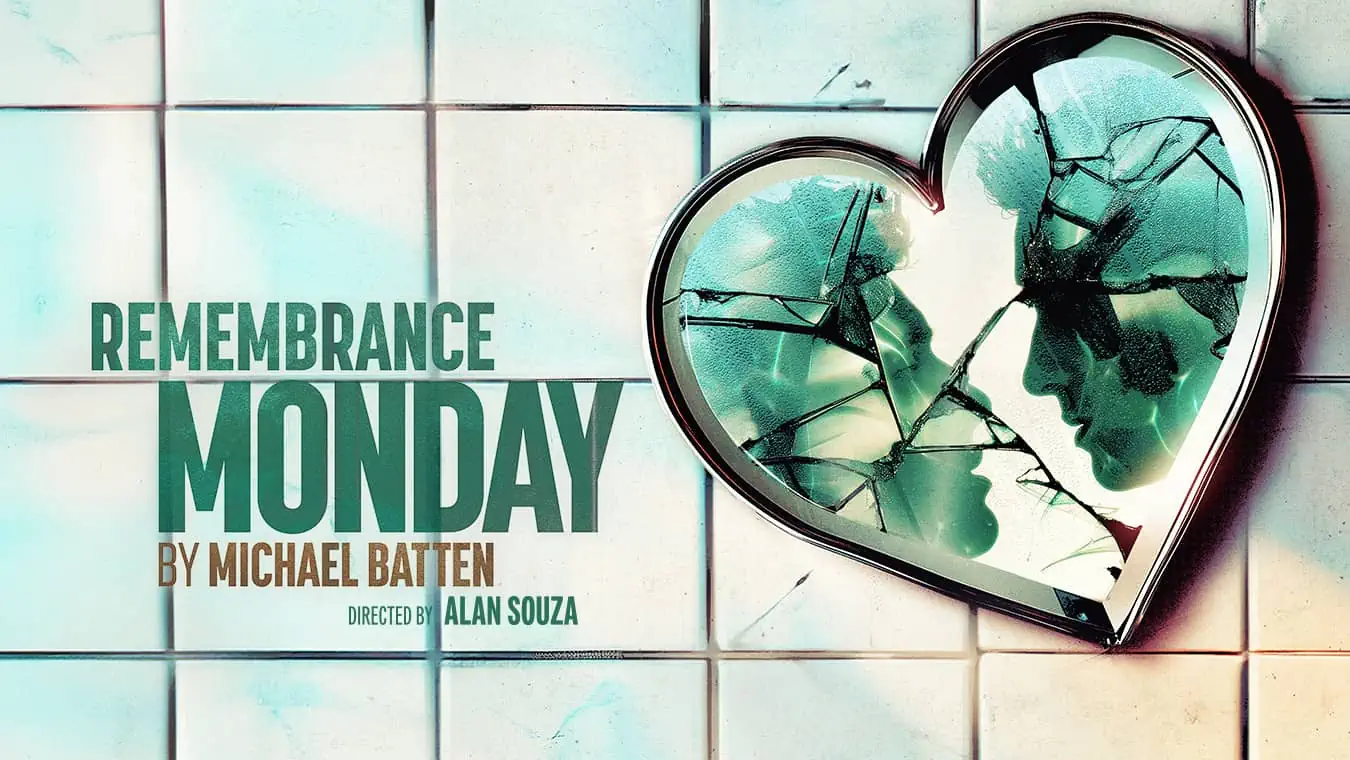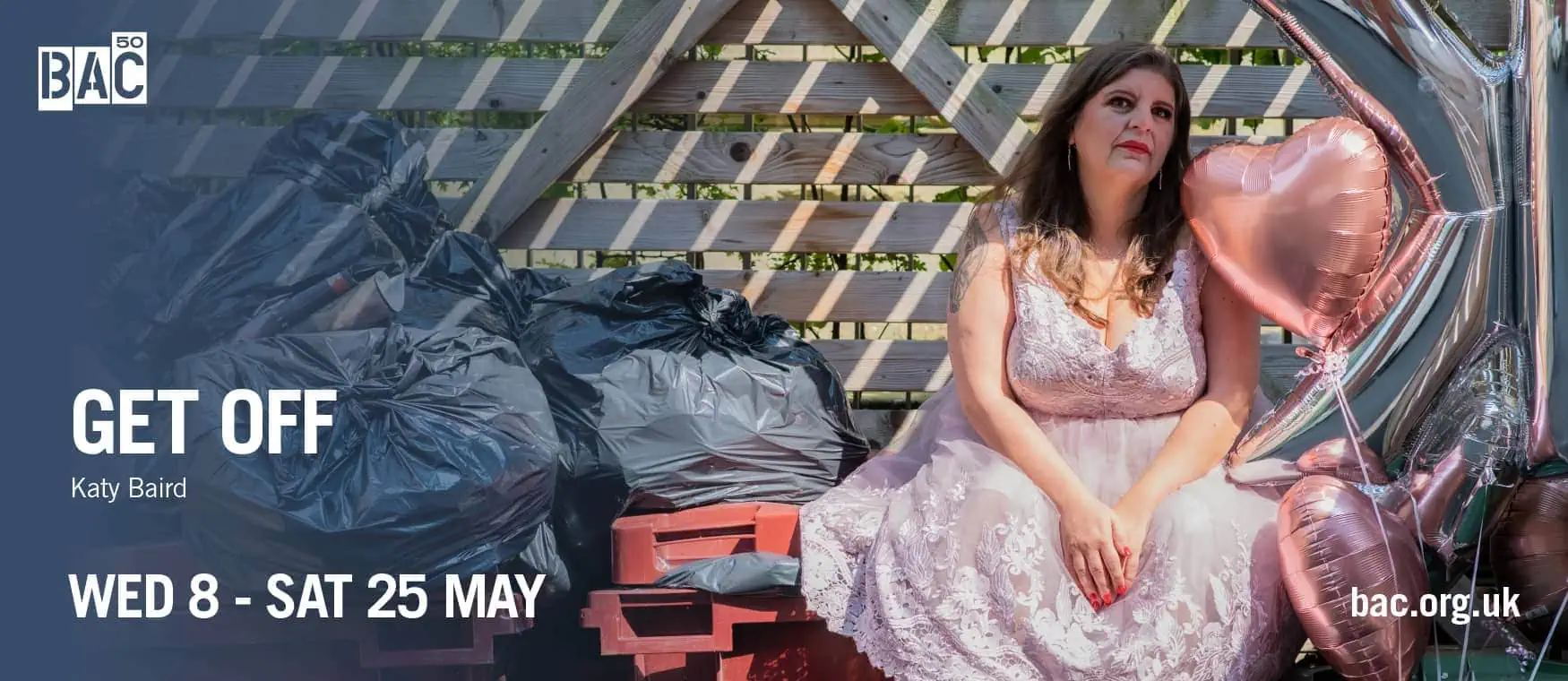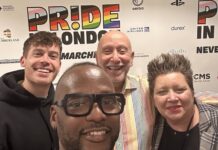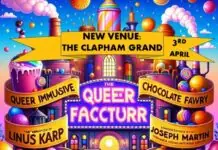As a reader, you won’t know him as well as the many DJs and drags that are featured in these pages every week, but QX writer Jason Reid is a very familiar face on London’s queer cabaret scene.
He knows practically every well-heeled performer, wannabe pig in a wig and seasoned stage legend going. He’s worked for QX for some years now reporting on cabaret, and is a hugely valued member of the team. This week, he tells his story about why the virus almost killed him, his survival and how today he is fit, well and living a full life… with HIV.
This is the first time he is discussing it publicly.
2005 was quite the year for me. Managing and living above a central London gay bar, life was manic to say the least. Partying almost every night with friends, regularly grabbing just a few hours sleep a night (well, day) before opening the bar, my routine in a way became my downfall. During the late summer of that year, I started to experience flu-like symptoms. However, the coughing, aches, drastic weight loss and having to put an upturned bucket in the shower to sit on because of exhaustion became the norm for me. My life was too fast to deal with it, so I didn’t.
I remember waking up on September 1st, hardly able to move. Something was wrong. At that time I was at my flat in East London so I booked an emergency appointment with my GP. She sent me straight to the Royal London Hospital in Whitechapel. I was admitted immediately. I still had no idea what was going on at this point. Tests were carried out that night including one for HIV.
I said to the nurse, “There’s no way I’ve got it, is there? I was tested six months ago.” I made a habit of testing regularly, despite being unaware of the symptoms. I can recall his knowing expression now, but didn’t think anything of it at the time.
The next day the results returned; a doctor sat by my bed and told me I was HIV positive, an aggressive strain, with a CD4 count of 9 (normal is 500-1500) and a viral load in the millions. I was also weighed, which I’d subconsciously stopped doing, and weighed in at just over seven stone. He explained my condition further, saying I had Pneumocystis pneumonia (PCP) and that I’d been ‘caught just in time.’ In layman terms I had AIDS.
My parents arrived that evening and I just remember my father having trouble processing it at first, but that didn’t last long. During the next three months of hospitalisation they were there twice a week (or more) like clockwork, through every complication. They watched me seizure as cryptococcal meningitis and the HIV attacked my brain; they sat in ambulances with me when things were very grave; they watched doctors give me one blood transfusion after the next; they were patient as I lashed out because of cognitive impairment and confusion; they rode a much scarier emotional roller coaster than I did. My mother told me afterwards that they wouldn’t speak a word on the train journeys back. ‘Most of the times we just couldn’t.’
Looking back, I think I was probably in a state of shock the whole time. I was in survival mode. No time to stop and think. That came after.
Eventually, I was moved to a specialist HIV hospice (as it was known at the time), Mildmay. A more homely setting that dealt with end-of-life care and rehabilitation. Thankfully, I slipped into the latter category. Many there didn’t. There the dedicated team built my immune system back up and treated the HIV dementia that had impaired my faculties, such as communication and writing. I returned to Mildmay last week, for the first time since my discharge in December 2005, and even though the hospital is newly refurbished and in a different location, and their work is mostly neuro cognitive, thankfully rarely dealing with fatalities anymore, the work they do, and the passion they all display doing it hasn’t changed one iota.
HIV changed my life. It changed my family’s life. Much more than can ever be expressed in a single article. The post-traumatic stress that followed still haunts me, and depression is something I deal with on a constant basis. However, I’m now nine years down the line, and healthy, on combination therapy. And I’m very proud of myself and my journey to this point. My advice would be: listen to your body, respond accordingly and get tested. I was very lucky to survive and I’m very grateful.
When my father passed away two years ago, my mother asked me to arrange his funeral, I made a point of including this line in the sermon: “My father was there for his children, constantly, without judgement, just love.” That’s the key, less judgement, more love.
His biggest fear about ‘coming out’ as HIV positive is…
People’s lack of understanding and eagerness to slap derogatory labels on individuals have always been my biggest concerns. Since the first known infections, over thirty years ago, treatment for HIV/AIDS has come so far, yet the stigma that attaches itself to living with what is now nothing more than a chronic medical condition remains. Stigma is the new killer. It’s why I’ve always kept my status relatively private. Accept me for who I am as a person, not because I made a mistake nine years ago.
On the support he had from friends and family…
My mother and father supported me through every single step of my time in hospital and the rehabilitation process. Even coming from a strict Catholic background, they never pried. I’m very lucky in that respect. Close friends, too, have been the same. One of my closest, Bette Rinse, has always known, constantly remaining a rock for me. These relationships are built on unconditional love. I know there are people in society that do judge, so I’ve never been one of those people to shout about my status. Firstly, I don’t want to have to go through that constant interrogation process, and second, I made inner peace with my diagnosis years ago.
On the gay scene forcing people to hide their status…
The scene doesn’t actively encourage openness. We all have personalities that we like to display in public, which stifles frank talk of such things as HIV, mental health and drug/alcohol/physical abuse. I can count on one hand the scene workers (drag artists/DJs/promoters) that are openly positive. I don’t believe you should feel compelled to, but if we feel judged by our own community then what hope is there for us in wider society? People put far too much emphasis on the ‘how did you get it?’ side, too. What does that matter? It’s an irrelevant and leading question that pre-judges an individual.
The worst reactions to his status…
During a short spell in the hospital, the doctors didn’t know the ‘procedure’ for dealing with HIV patients. I was quarantined and anyone that entered my room had to do so in full medical gear (masks etc). That wasn’t the pleasantest of experiences. I’ve also had issues registering with dentists, as some are still wary about treating those with HIV. And those that do, tend to have a procedure of ‘double- gloving.’ It shatters your confidence right there and then.
On relationships…
Dating can be a minefield when you’re HIV+. When do you tell them? How do you tell them? Coping with the rejection and your confidence being shattered by something you have no control over. And having to possibly go through that process every time you meet someone new, even though the chances of contracting the virus from someone whose viral load is undetectable, such as myself, is statistically less than someone who doesn’t test and assumes themselves to be negative. Now that’s a Russian roulette.
On educating other people…
Things have got a lot better, especially since the advent of social media, regardless of what you think of it as a source of mass communication. People are now more informed and have easier access to that information. QX does a great job too with articles such as these, which raise awareness and help slowly ebb away at the stigma. Education lacks on a wider scale though. Ask someone who’s not privy to that information what they know about HIV and the response won’t be very positive (excuse the pun). Religious organisations and people’s ingrained cultural beliefs have demonised the condition as a ‘gay disease’ for years. We need to reverse that, and normalise how it’s perceived.
The one thing he’d like people to know about living with HIV…
Whilst it changed my life dramatically, life goes on. In time I’ve learnt to live and control the physical symptoms, but for me, the mental scars are the hardest to cope with. Everyone’s HIV experience is different though, so please, don’t generalise. Acceptance and love is all anyone wants in life. It’s not the death sentence it once was, but people shouldn’t see that as an excuse for complacency. And if a mistake does happen, don’t brush it aside, deal with it before it deals with you.














very moving story and powerful reminder that hiv should not be belittled just because there are meds now. so many parallels to my experience in the 90s. hiv changes our lives. this is what young people need to know. some thoughts from a long term survivor: http://gayspirituality.typepad.com/blog/2014/11/hiv-means-healing-is-vital-world-aids-day-2014.html